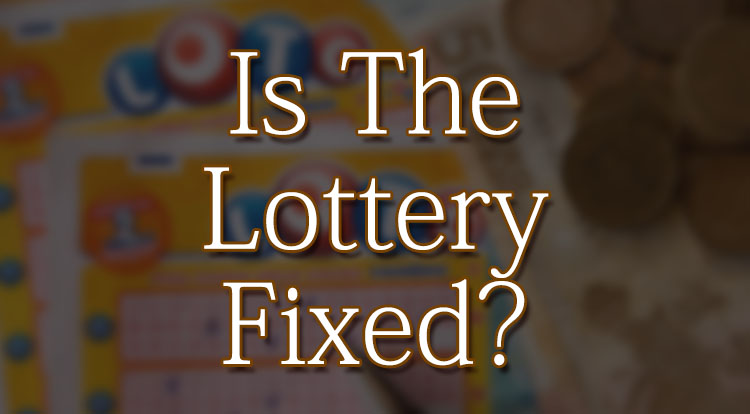
Contrary to popular belief, the lottery is not fixed.
This statement may seem contradictory to those who've bought countless tickets and never won a penny. However, a deeper understanding of how the lottery works will illustrate why it is not feasible for the lottery to be fixed.
The lottery is, by definition, a game of chance. Each participant has an equal probability of winning. In each lottery game, every number stands an equal chance of being drawn, making the outcome completely random and unpredictable.
Is The Lottery Rigged?
The National Lottery in the UK is regulated by the UK Gambling Commission (UKGC), a government body that ensures all gambling activities are conducted fairly and transparently. The UKGC sets stringent guidelines that lottery operators must adhere to. Failing to comply with these rules can lead to severe penalties, such as hefty fines, licence revocation, and business closure.
The Camelot Group operates the National Lottery. They have no incentive to breach the UKGC's rules as doing so would jeopardise their licence and the considerable revenue they generate from ticket sales. For instance, the Lotto, their most popular game, sells between 15 and 45 million tickets on average. Rigging the lottery results would not only be unethical but also financially irrational.
A quick glance at the mechanisms involved in drawing the winning numbers can also help to illustrate why rigging the lottery results is virtually impossible.
The National Lottery uses an air-mix lottery machine to pick the winning numbers. This machine is filled with lightweight ping-pong balls, each bearing a number. For the Lotto draw, for example, the balls are numbered from 1 to 59.
As the draw commences, the balls circle the machine due to jets of air coming from a fan beneath the drum. After a while, one of the balls starts to descend and roll towards the bottom, where the number is then read out.
All the balls used in a draw are of the same weight and size. This ensures that every number has an equal chance of being picked. Also, the continuous movement of the balls inside the machine, propelled by air, makes it impossible to predict the outcome.
How Can We Prove The Lottery Is Real?
There are several ways to ascertain that the lottery is real and not rigged.
Live Recording of Draws
Firstly, the National Lottery records its draws live, allowing anyone to watch the numbers being picked. Any attempt to rig the results would be caught on camera, providing concrete evidence against the perpetrators.
Regular Audits
Regular audits of the National Lottery also take place to ensure the fairness and randomness of all games. These audits act as an extra layer of security, reinforcing the credibility of the lottery.
Real-Life Winners
Perhaps the most compelling evidence that the lottery is real are the stories of actual winners. Many articles online highlight these stories, proving that real people do win the lottery. While some winners choose to stay anonymous, others share their winning stories publicly, adding to the lottery's legitimacy.
Is The National Lottery Truly Random?
Yes, the National Lottery is indeed random. Measures are in place to ensure the randomness and fairness of all draws.
Each lottery draw follows strict procedures. The draw machines and ball sets are tested by Camelot and the National Measurement Office. Additionally, independent testing is carried out by the University of Hertfordshire.
After each draw, the machines and ball sets are sealed and kept in secure storage. Access to these areas is strictly limited to authorised personnel, and the seals are checked before a set of balls is used.
An independent adjudicator oversees every draw to ensure it is conducted in line with all procedures. This person is responsible for ensuring the draws are carried out fairly, adding another level of assurance to the randomness of the results.
Conclusion
In conclusion, while it may be tempting to believe that the lottery is fixed, the reality is quite different. The lottery is a game of chance, and it is strictly governed and operated to ensure it is random and fair. The odds of winning, especially for the top jackpot prize, are small, but it isn't rigged.
